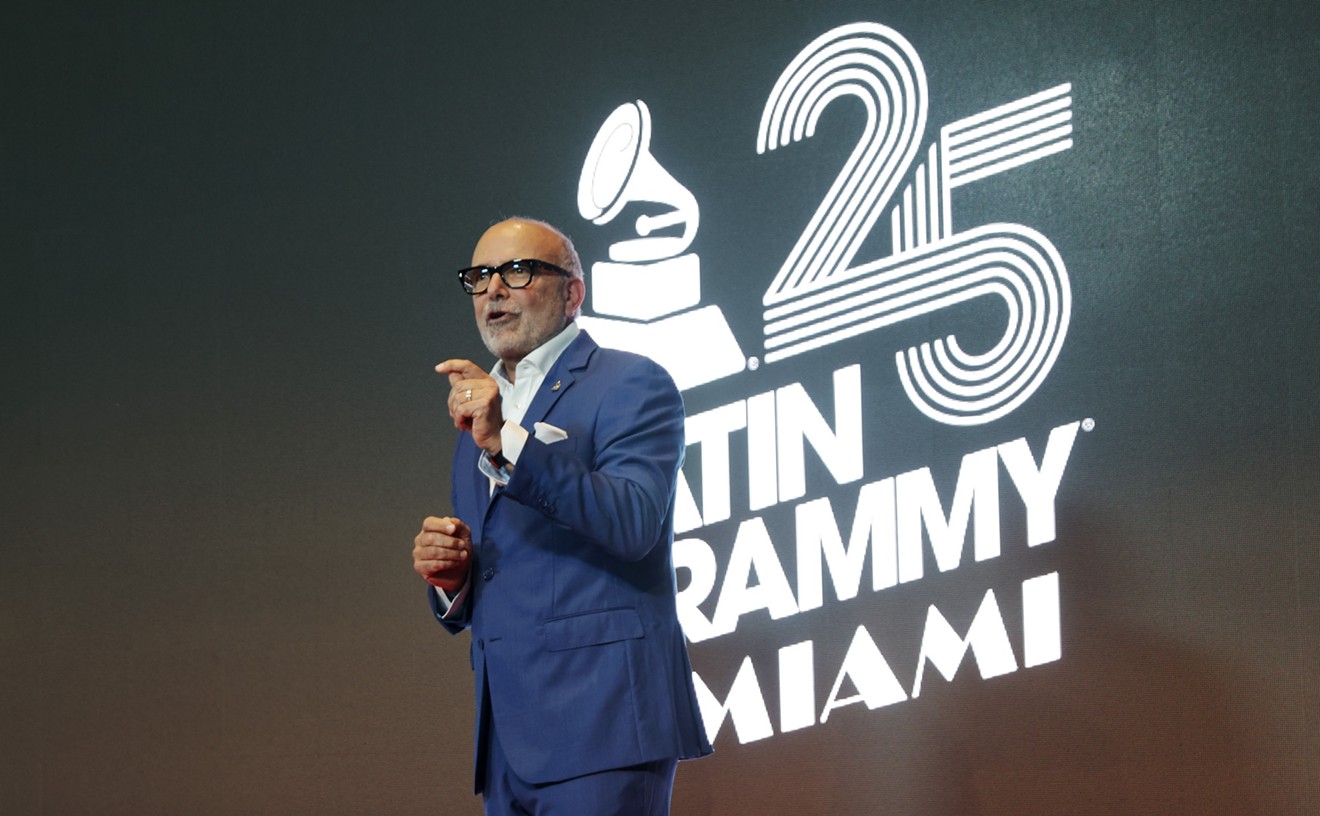Unable to contain his frustration at the spiraling controversy surrounding hateful lyrics, reggae legend and Miami resident Freddie McGregor released "Lock It Down" earlier this summer. The song appeals for sanity regarding issues of tolerance: "All this crazy talk them carry 'round town, right now we come fe lock it down, clean up your lyrics and spread love around/people are tired of the idle chatting and the bangarang [confusion]/we come fe lock dem down, we come to shut the madness down."
The song's message obviously hit home with reggae fans and artists alike. "Lock It Down" recently topped the South Florida and New York reggae charts and is currently in the Top 10 throughout the Caribbean.
"I've always admired Bob Marley's understanding of what is happening in the broader world, and he never made any songs that discriminate against the gay and lesbian communities," explains McGregor from his Miami home. "Bob was really unique in sending his message and saying what he stood for, and I am sure not only Jamaicans went to Bob's concerts but just about everyone across the board."
Clearing dancehall's name is a tall order, but if anyone is up for the challenge, it's McGregor. A 42-year music industry veteran whose velvety vocals have made him a consistent hit-maker, McGregor is able to interpret Rastafarian anthems, ska classics, American soul shots, and romantic musings with equal conviction and sophistication. His recent VP Records release, Comin' in Tough, is McGregor's finest work in several years. Enlisting the production skills of his sons Daniel and Steven, as well as Jah Ruby and veteran hit-maker Bobby "Digital" Dixon, Comin' in Tough presents a dazzling cross section of Jamaica's musical heritage. The album juxtaposes vintage ska and rock steady beats alongside spirited reggae riddims, while McGregor delivers durable, uplifting lyrics that directly oppose the disposable diatribes that have recently dominated the international spotlight.
With 38 albums to his credit, McGregor certainly knows a thing or two about reggae music. He began singing in the early Sixties in the Jamaican parish of Clarendon (known for its abundant sugar cane) and attained local notoriety for a song he wrote called "Roll Dumpling Roll."
McGregor then began harmonizing with his older friends Ernest Wilson and Peter Austin, known professionally as the Clarendonians. The duo had already recorded a few singles that were doing well in Jamaica, and when the time came for them to return to Kingston for additional recording at Coxsone Dodd's seminal Studio One, they took little McGregor with them.
Dodd quickly recognized McGregor's enormous talents, and he unofficially adopted McGregor as his son around 1963 and began grooming the seven-year-old for future success. Dodd eventually sent McGregor to live with a Christian family who prioritized spiritual values and insisted on daily Bible reading, a practice that continued when McGregor adopted the Rastafarian way of life in 1975. That Rastafari reasoning and Christian teachings have been central themes throughout McGregor's career, from the Studio One landmark releases "Bobby Babylon" and "Africa Here I Come" to efforts with producer Niney The Observer on "Mr. McGregor."
Throughout the Eighties McGregor continued churning out hits. His cover of the Sandpipers' "Guantanamera" earned him legions of Latino fans, and his remake of the Main Ingredient's soul hit "Just Don't Want to Be Lonely" reached the Top 10 on the English pop charts. "Raggamuffin," recorded with the late Dennis Brown, was a late Eighties dancehall anthem, while Freddie's Jamaican Classics Volumes 1-3 released in the early Nineties repositioned vintage tunes such as Derrick Harriott's "The Loser" (retitled "The Winner"), Little Roy's "Prophecy," and the late Justin Hinds's "Carry Go Bring Come."
But as the title of McGregor's latest CD suggests, he is returning strong with Comin' in Tough -- a record that is both stylistically adventursome and politically attuned. "Bangarang" urges Jamaicans to stop the violence and restore the island's greatness, a theme similarly expressed on "Set the Program." Freddie sweetly croons the engaging lovers rock tune "In Your Dreams." Elsewhere McGregor covers B.B. Seaton's "Red Rose" and the Wailers' "Love and Affection." But the album's high mark remains "Lock It Down." And though the song's success has even caused some DJs to reexamine their attitudes regarding tolerance of alternative lifestyles, much work remains to be done.
"When things are wrong, it upsets me because we have worked so hard to get the music to where it is now," McGregor says. "Capleton had all of his European dates canceled, Sizzla had shows canceled, and Buju [Banton] is struggling to get dates out there without people protesting him. Our music was never like that because we did not cause it to be like that and people don't differentiate between what they do and what we do. A lot of the DJs have said they are not reggae artists, that they are dancehall artists, yet whenever problems arise in the dancehall, reggae gets the blame. We didn't create the problem, so we shouldn't be suffering for it, and that's why I am determined to do something about it."










